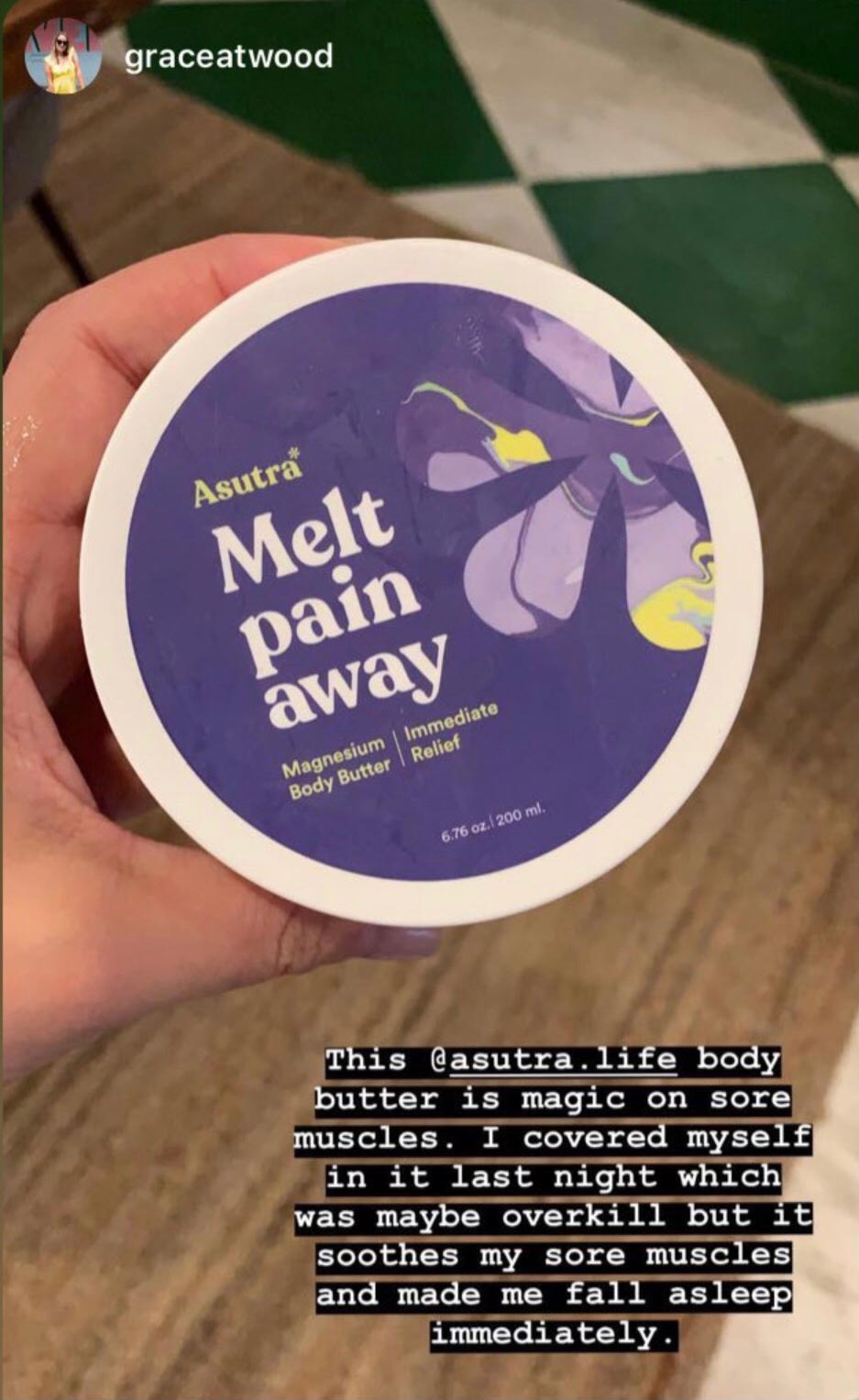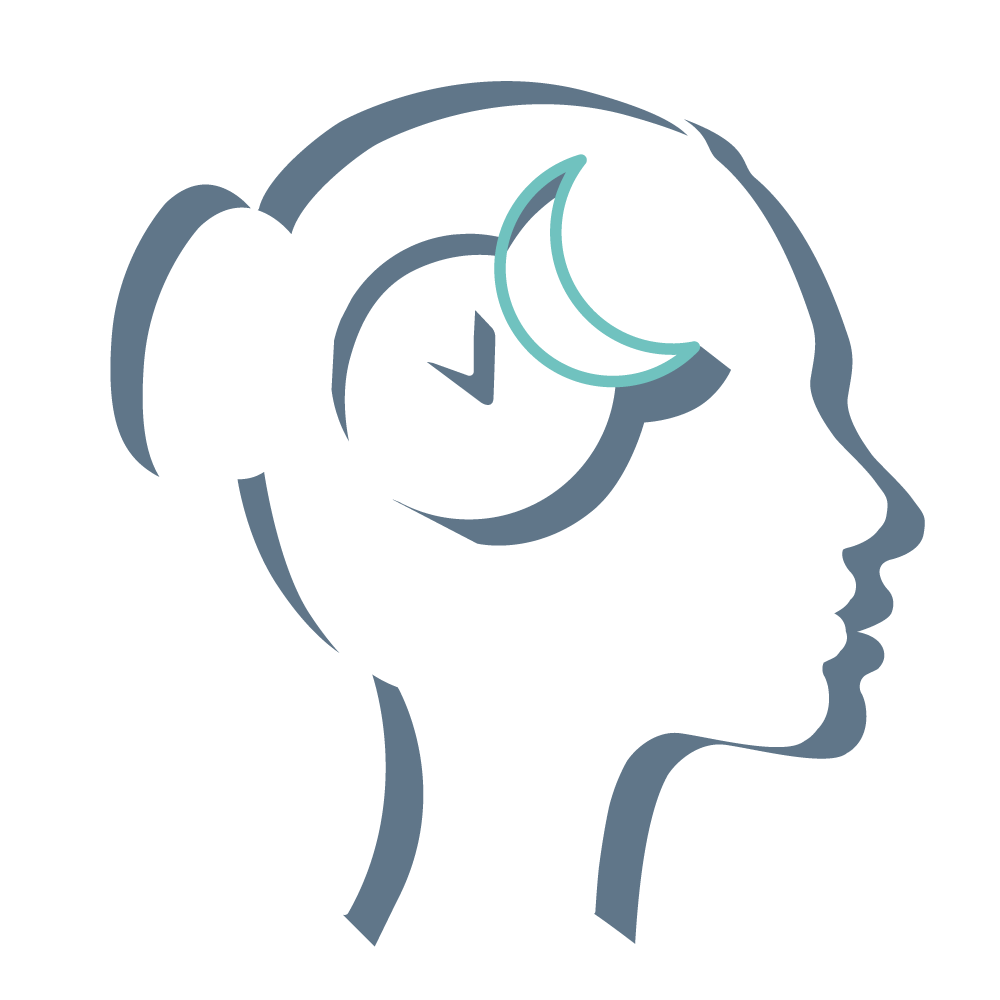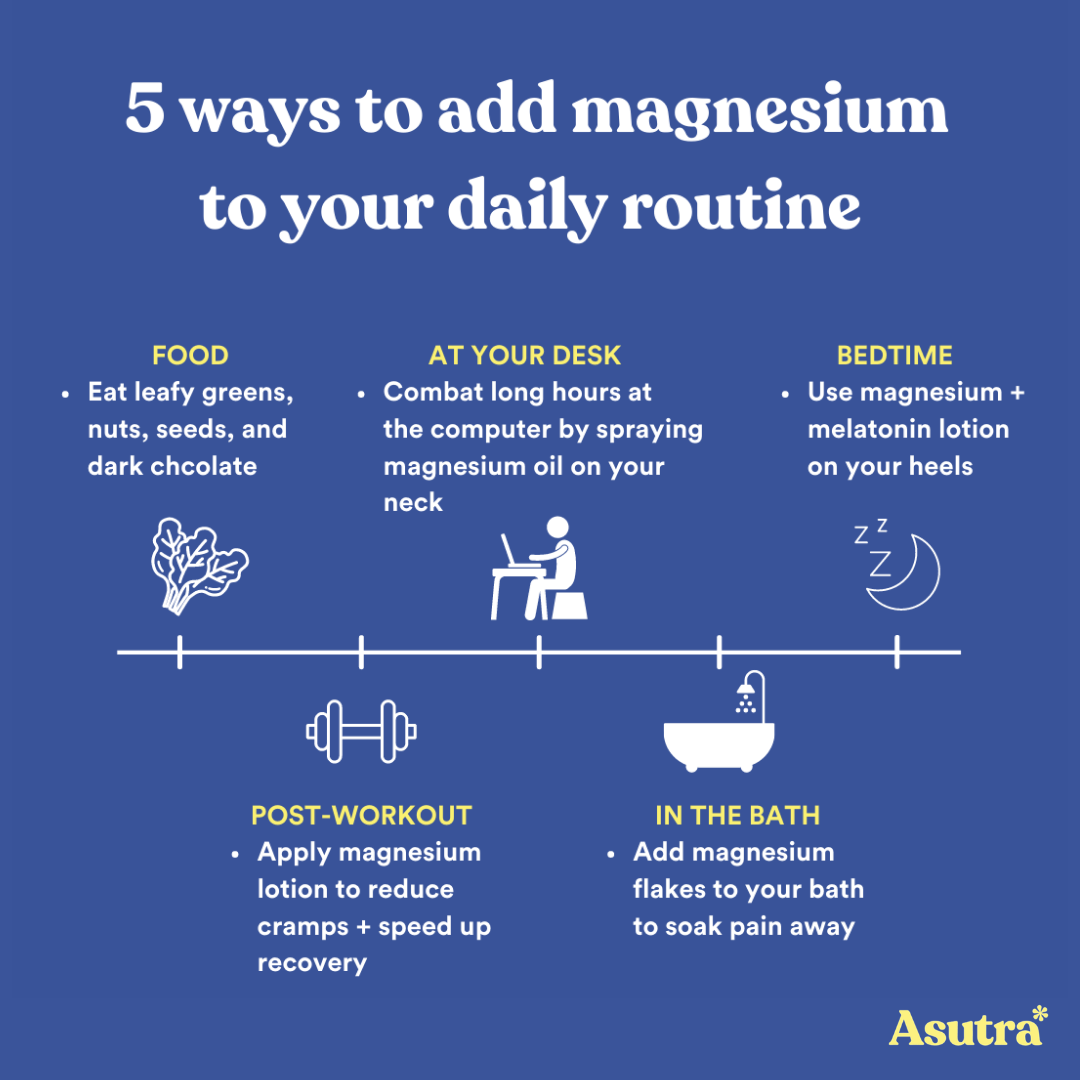
Are You Magnesium Deficient?
Two of three people suffer from magnesium deficiency
Magnesium is a mineral used by every organ in your body, especially your heart, muscles, and kidneys.
The recommended dietary allowance for magnesium:
Male:
- 19-31 years: 400mg/day
- 31+ years: 420mg/day
Female:
- 19-31 years: 310mg/day
- 31+ years: 320mg/day
Pregnant Women:
- 19-31 years: 350mg/day
- 31+ years: 360mg/day
Symptoms to watch for
Early signs of magnesium deficiency are wide-ranging, including...
- a loss of appetite,
- headache,
- nausea,
- fatigue,
- muscle spasms and weakness.
Important note: It is possible to experience the symptoms above, but not have a magnesium deficiency. To confirm whether you are magnesium-deficient, please consult a physician.
For more on this topic, read our longer blog here.

Magnesium & Pain Relief
Can magnesium help with muscle and joint relief?
Magnesium is a mineral known to relieve muscle tension and pain by inhibiting calcium ions from entering cells by blocking NMDA receptors—the receptors in your nervous system that feel pain.1
Various research studies have shown that magnesium can help reduce pain associated with muscle cramps, headaches and migraines.
Doctors treating patients with muscle spasms look for magnesium deficiency as that’s often a cause of the cramps.2 Without magnesium, muscles do not relax properly and cramps occur.
Magnesium is important for flexibility, because low magnesium results in a build-up of lactic acid, causing pain and tightness.


Magnesium for Migraines
Can magnesium help with migraines?
Research suggests that magnesium may shorten the duration of a migraine and reduce the amount of medication needed.
People who have migraine headaches tend to have lower levels of magnesium compared to those with tension headaches or no headaches at all.
Migraines may be caused by hypersensitivity of the NMDA receptor. Since magnesium inhibits calcium ions from entering cells by blocking NMDA receptors—the receptors in your nervous system that feel pain—it can help relieve migraines.
Studies have shown that magnesium supplementation is effective in headache prevention.3


Boost your energy with magnesium
Can magnesium increase energy?
Individuals with low levels of magnesium in the muscles use up more energy even during moderate physical activity and, therefore, tire easily, according to a study conducted by the U.S. Department of Agriculture.4
The researchers of the study suggest that low dietary intake of magnesium reduces the level of the mineral in your blood and muscles and can lead to poor athletic performance.
Magnesium in your body creates energy by activating adenosine triphosphate (ATP), which is the fundamental unit of energy within the body’s cells. Magnesium allows the body to produce more insulin-like growth factor (IGF-1), which is a major contributor to the growth and strength of muscles.
Without proper levels of magnesium, the nutrients that you take in through food and supplements would not be metabolized into energy.


Magnesium for Anxiety and Stress Relief
Can magnesium help reduce stress and anxiety?
Inadequate magnesium appears to reduce serotonin levels.
Several studies have also looked at how stress levels affect magnesium. They found that during periods of extreme stress, magnesium is often used up by the body. Not only is a significant portion of the country magnesium deficient, potentially leading to anxiety—there may also be a high number of people who use up their magnesium reserves as a result of their anxiety, thus contributing to more anxiety and more stress.
A study in France of 264 patients with generalized anxiety disorder found that a statistically significant number of men and women reported improvements on a magnesium regimen.5,6 Another study found that magnesium may have a positive effect on depression as well.7


A Secret to Less PMS: Magnesium
Can magnesium alleviate PMS symptoms?
Scientific studies suggest that magnesium supplements and topical magnesium may help relieve symptoms associated with PMS8,9,10, particularly:
- Bloating
- Cramps
- Insomnia
- Leg swelling
- Weight gain
- Breast tenderness
- Mood swings, irritability, and anxiety
How does it work?
Scientists hypothesize that magnesium inhibits the biosynthesis of PGF2alpha. PGF2alpha is a prostaglandin, which are physiologically active lipid compounds that have diverse hormone-like effects in humans and animals. By inhibiting PGF2alpha, magnesium helps to alleviate uterine muscle contractions, which is what causes menstrual cramps.


The Ultimate Natural Sleep Aid
Can magnesium improve sleep?
Magnesium for insomnia can be a great tool to have in your medicine cabinet. As explained by Michael J. Breus, PhD, a Clinical Psychologist and sleep disorder specialist,
“Magnesium plays a role in supporting deep, restorative sleep by maintaining healthy levels of GABA (gamma-aminobutyric acid), a neurotransmitter that promotes sleep. Research indicates supplemental magnesium can improve sleep quality, especially in people with poor sleep. Magnesium can also help treat insomnia that’s linked to the sleep disorder restless legs syndrome.”11
Stress and tension are often reasons why people suffer from insomnia. Magnesium brings balance and controls stress hormones, helping you sleep easier.
For more on sleep, read our longer blog here.

5 Ways to Add Magnesium to Your Day
We strive to share (on repeat) how critical magnesium is to healthy body functions and that 2 in 3 of us do not have the optimal magnesium levels in our bodies. The good news? You can add magnesium to your daily routine with very little effort. Below are five of Team Asutra’s favorite ways to get this mighty mineral:
- Food: One easy way to boost your magnesium intake is through your diet. Magnesium-rich foods include bananas, nuts, leafy greens, avocados, and even dark chocolate. However our soil does not have as much magnesium as it used to so most of us need to supplement.
- Post-Workout: Without adequate recovery after a workout, it is hard to continue to perform at your best. Following a workout, we recommend rubbing topical magnesium lotion or spray all over your body to help reduce soreness and cramping. It’s also the perfect way to speed up your recovery! And the more intense your workouts, the more magnesium you use up.
- At Work: A long day of working at your computer can leave you feeling sore and tense. Combat your stiff neck by rubbing magnesium oil onto the affected area. It provides quick, targeted pain relief. To get the maximum benefits, make sure your skin is clean; this will help the magnesium absorb better and faster.
- In the Bath: One of the best ways to relax at the end of the day is with a warm bath. Asutra makes it easy to create a therapeutic soak! Add 1-2 cups of our magnesium flakes into a tub of warm water. Soak for at least 15-20 minutes to get the full benefits. For an extra aromatherapy boost, add a few drops of your favorite essential oils or combine with our essential oil bath soaks.
- Bedtime: End your day with our Dream the Night Away magnesium and melatonin lotion. It is the perfect thing to power you down for a great night’s sleep. We recommend applying 30 minutes before bedtime (or 2 hours if you’re a night owl).
Learn more about magnesium in our longer blog here.
Citations
01. Hyo-Seok Na, Jung-Hee Ryu, and Sang-Hwan Do. The role of magnesium in pain. Magnesium in the Central Nervous System. PMID: 29920000. https://www.ncbi.nlm.nih.gov/books/NBK507245/↩
02. D. L. Bilbey and V. M. Prabhakaran. Muscle cramps and magnesium deficiency: case reports. Can Fam Physician. 1996 Jul; 42: 1348–1351.↩
03. The Migraine Trust. Evidence for supplements and herbs used in the management of migraine. https://www.migrainetrust.org/living-with-migraine/treatments/supplements-and-herbs/↩
04. USDA. Lack Energy? Maybe It’s Your Magnesium Level. https://agresearchmag.ars.usda.gov/2004/may/energy↩
05. Abraham M. Does Magnesium Work For Anxiety? https://www.calmclinic.com/anxiety/drugs/magnesium↩
06. Hanus M1, Lafon J, Mathieu M. Double-blind, randomised, placebo-controlled study to evaluate the efficacy and safety of a fixed combination containing two plant extracts. https://www.ncbi.nlm.nih.gov/pubmed/14741074↩
07. Deans, Emily. Magnesium for Depression. https://www.psychologytoday.com/us/blog/evolutionary-psychiatry/201801/magnesium-depression↩
08. Milton S. “Premenstrual Syndrome.” Hershey Medical Center, Penn State. http://pennstatehershey.adam.com/content.aspx?productId=111&pid=33&gid=000132↩
09. De Souza MC, Walker AF, Robinson PA, Bolland K (2000) A synergistic effect of a daily supplement for 1 month of 200 mg magnesium plus 50 mg vitamin B6 for the relief of anxiety-‐related premenstrual symptoms: a randomized, double-‐blind, crossover study. J Womens Health Gend Based Med 9:131-‐9.↩
10. Stromberg P, Akerlund M, Forsling ML, Granstrom E, Kindahl H (1984) Vasopressin and prostaglandins in premenstrual pain and primary dysmenorrhea. Acta Obstet Gynecol Scand 63:533-‐8.↩
11. Breus, Michael. What You Need to Know About Magnesium and Your Sleep. https://www.psychologytoday.com/us/blog/sleep-newzzz/201805/what-you-need-know-about-magnesium-and-your-sleep↩









